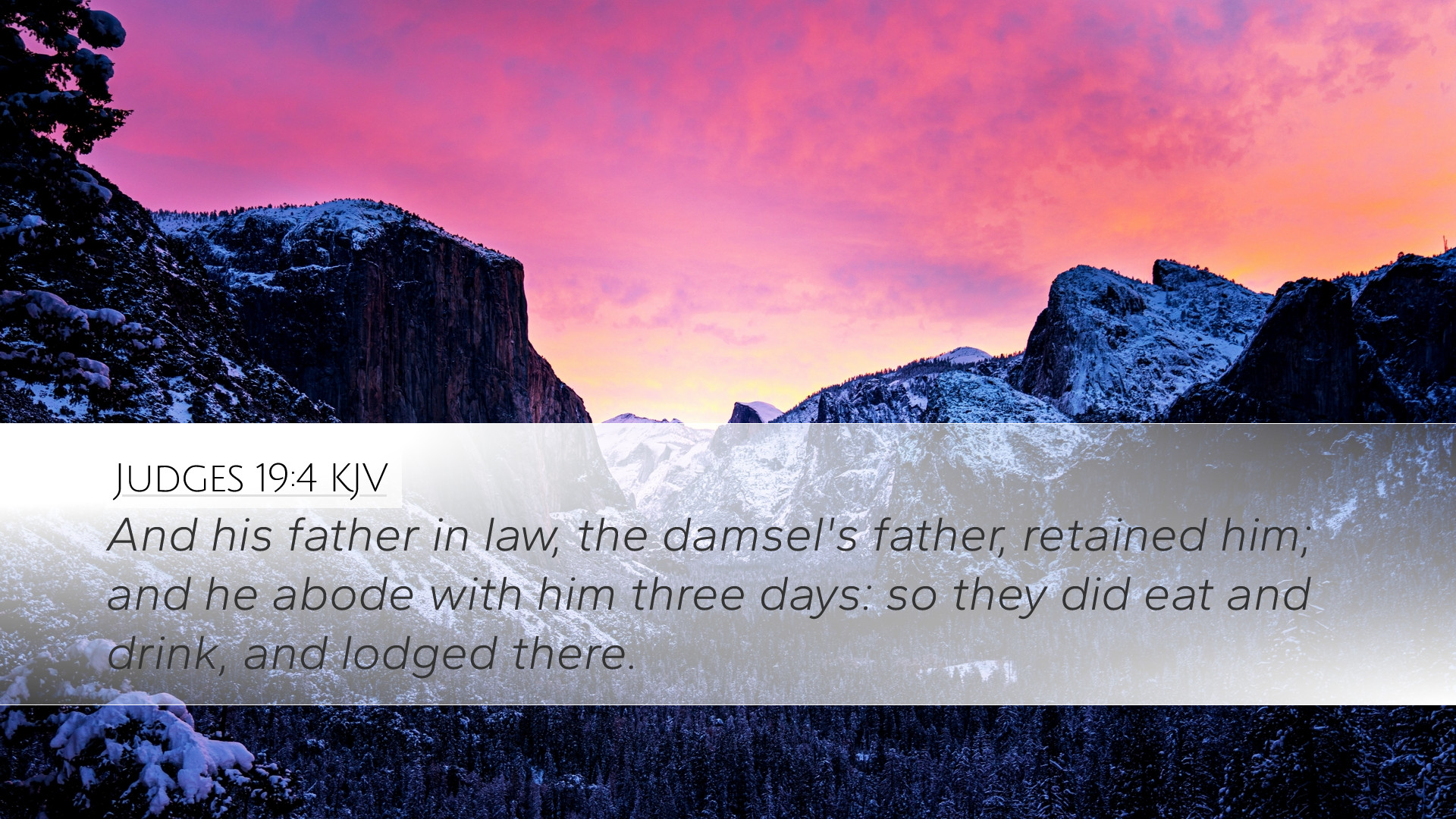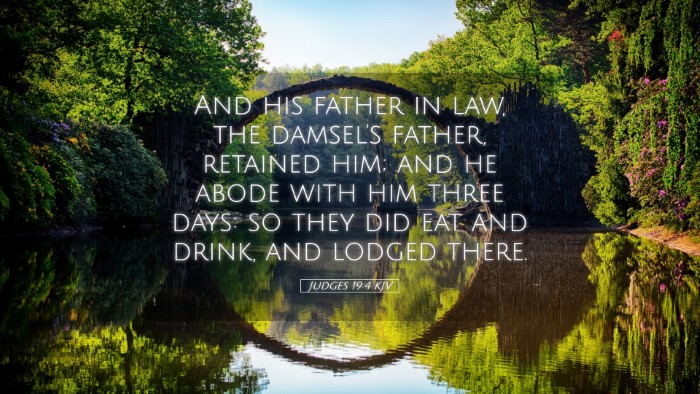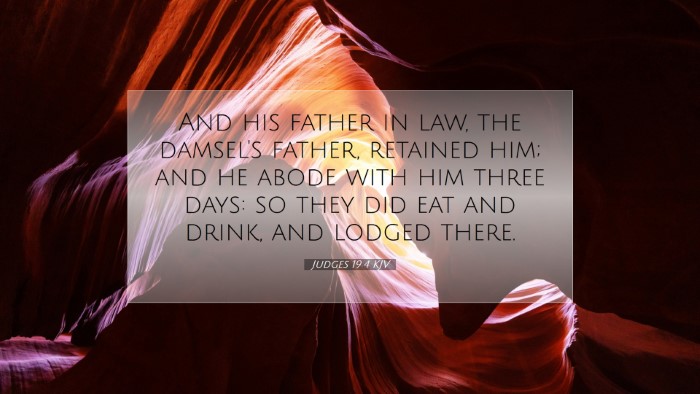Commentary on Judges 19:4
Judges 19:4 states: "And his father-in-law, the damsel’s father, retained him; and he abode with him three days: so they did eat and drink, and lodged there."
Context and Overview
This verse introduces a scenario that serves as a prelude to a tragic and significant narrative within the Book of Judges. The passage describes the interactions between a Levite, his concubine, and her father—elements that are crucial for understanding the cultural and societal dynamics of the period. This context is essential for comprehension as it reflects the prevailing attitudes and the often tumultuous relationships in ancient Israel.
Insights from Public Domain Commentaries
Matthew Henry's Commentary
Matthew Henry notes the invitation extended by the father of the damsel, showcasing the hospitality that was common in ancient Near Eastern cultures. He emphasizes the importance of family and kinship ties in this context. The Levite’s stay for three days indicates a prolonged engagement with the family, allowing for deeper social bonds and the establishment of hospitality norms.
Henry also remarks that the duration of the visit implies a sense of mutual respect and familial affection as the Levite was welcomed into the home of his father-in-law. This aspect illustrates the intricate web of relationships that governed social interactions, highlighting the themes of loyalty and kinship.
Albert Barnes' Commentary
Albert Barnes provides an insightful analysis of the significance of hospitality in this narrative. He points out that hospitality was not only a duty but also a sacred obligation in ancient Israel. The Levite’s extended stay reflects the cultural expectation of generosity and kindness towards guests. Barnes discusses how this tradition serves to enrich the cultural fabric of the society, despite the often chaotic situations that arise in the Book of Judges.
Moreover, Barnes emphasizes the importance of food and drink as symbols of fellowship and affirmation of community ties. He indicates that sharing a meal together was a significant expression of unity and goodwill, which is foundational to understanding the events that follow in this tragic account.
Adam Clarke's Commentary
Adam Clarke interprets this verse as demonstrating the Levite's desire to establish peace and harmony with his father-in-law. Clarke elucidates the motivations behind the Levite's visit, suggesting that he aimed to reconcile and strengthen his relationship with the family. He elaborates that the three-day duration was not merely for sustenance but also for negotiation and discussion regarding the bonds that link them.
Clarke also mentions that the Levite's decision to stay reflects an understanding of the cultural protocols of the time, wherein family relationships were prioritized, highlighting the delicate balance between personal desires and familial obligations.
Theological Implications
The passage raises several theological considerations that resonate with pastoral and scholarly interpretations:
- Hospitality as a Covenant Duty: The act of hospitality sheds light on the broader covenantal responsibilities of individuals towards their families and communities.
- The Value of Relationships: The interactions in this verse illustrate the significance of relationships in achieving peace and understanding, suggesting that communal living is a reflection of divine intention.
- Foreshadowing Conflict: The contrast between the warm hospitality experienced and the grim events that unfold later in the narrative serves as a stark reminder of the human condition and the propensity for conflict.
Pastoral Applications
This verse offers several applications for pastoral care and preaching:
- The Encouragement of Hospitality: Pastors might emphasize the importance of hospitality in their congregations, encouraging believers to open their homes and hearts to others in a reflection of Christ’s love.
- The Importance of Reconciliation: The Levite's visit can be interpreted as a call for reconciliation and the healing of relationships within the church community, urging followers to prioritize familial and communal bonds.
- The Complexity of Human Relationships: The narrative underscores the complexities and sometimes tragic outcomes of human interactions, reminding congregants to approach relationships with grace and understanding.
Conclusion
In Judges 19:4, we see a seemingly simple verse that encapsulates deeper themes of hospitality, relationship dynamics, and societal norms in ancient Israel. The insights gathered from notable commentaries provide a richer understanding of the text, inviting pastors, theologians, and students of Scripture to reflect on the implications of these relationships within the broader biblical narrative. This passage encourages believers to consider their own interactions and the moral imperative of fostering community through hospitality and reconciliation.


